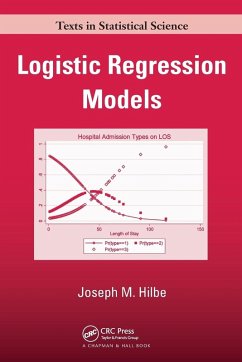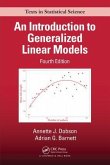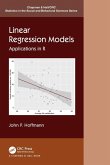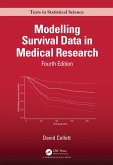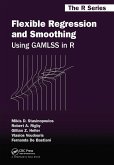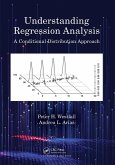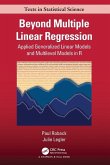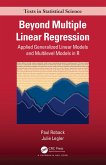Logistic Regression Models presents an overview of the full range of logistic models, including binary, proportional, ordered, partially ordered, and unordered categorical response regression procedures. Other topics discussed include panel, survey, skewed, penalized, and exact logistic models. The text illustrates how to apply the various models to health, environmental, physical, and social science data.
Examples illustrate successful modeling
The text first provides basic terminology and concepts, before explaining the foremost methods of estimation (maximum likelihood and IRLS) appropriate for logistic models. It then presents an in-depth discussion of related terminology and examines logistic regression model development and interpretation of the results. After focusing on the construction and interpretation of various interactions, the author evaluates assumptions and goodness-of-fit tests that can be used for model assessment. He also covers binomial logisticregression, varieties of overdispersion, and a number of extensions to the basic binary and binomial logistic model. Both real and simulated data are used to explain and test the concepts involved. The appendices give an overview of marginal effects and discrete change as well as a 30-page tutorial on using Stata commands related to the examples used in the text. Stata is used for most examples while R is provided at the end of the chapters to replicate examples in the text.
Apply the models to your own data
Data files for examples and questions used in the text as well as code for user-authored commands are provided on the book's website, formatted in Stata, R, Excel, SAS, SPSS, and Limdep.
See Professor Hilbe discuss the book.
Examples illustrate successful modeling
The text first provides basic terminology and concepts, before explaining the foremost methods of estimation (maximum likelihood and IRLS) appropriate for logistic models. It then presents an in-depth discussion of related terminology and examines logistic regression model development and interpretation of the results. After focusing on the construction and interpretation of various interactions, the author evaluates assumptions and goodness-of-fit tests that can be used for model assessment. He also covers binomial logisticregression, varieties of overdispersion, and a number of extensions to the basic binary and binomial logistic model. Both real and simulated data are used to explain and test the concepts involved. The appendices give an overview of marginal effects and discrete change as well as a 30-page tutorial on using Stata commands related to the examples used in the text. Stata is used for most examples while R is provided at the end of the chapters to replicate examples in the text.
Apply the models to your own data
Data files for examples and questions used in the text as well as code for user-authored commands are provided on the book's website, formatted in Stata, R, Excel, SAS, SPSS, and Limdep.
See Professor Hilbe discuss the book.
This book really does cover everything you ever wanted to know about logistic regression ... with updates available on the author's website. Hilbe, a former national athletics champion, philosopher, and expert in astronomy, is a master at explaining statistical concepts and methods. Readers familiar with his other expository work will know what to expect-great clarity.
The book provides considerable detail about all facets of logistic regression. No step of an argument is omitted so that the book will meet the needs of the reader who likes to see everything spelt out, while a person familiar with some of the topics has the option to skip "obvious" sections. The material has been thoroughly road-tested through classroom and web-based teaching. ...
The focus is on helping the reader to learn and understand logistic regression. The audience is not just students meeting the topic for the first time, but also experienced users. I believe the book really does meet the author's goal ... .
-Annette J. Dobson, Biometrics, June 2012
Overall this is a comprehensive book, which will provide a very useful resource and handbook for anyone whose work involves modelling binary data.
-David J. Hand, International Statistical Review (2011), 79
... useful as a textbook in a course on logistic regression.
-Andreas Rosenblad, Technometrics, May 2011
The book provides considerable detail about all facets of logistic regression. No step of an argument is omitted so that the book will meet the needs of the reader who likes to see everything spelt out, while a person familiar with some of the topics has the option to skip "obvious" sections. The material has been thoroughly road-tested through classroom and web-based teaching. ...
The focus is on helping the reader to learn and understand logistic regression. The audience is not just students meeting the topic for the first time, but also experienced users. I believe the book really does meet the author's goal ... .
-Annette J. Dobson, Biometrics, June 2012
Overall this is a comprehensive book, which will provide a very useful resource and handbook for anyone whose work involves modelling binary data.
-David J. Hand, International Statistical Review (2011), 79
... useful as a textbook in a course on logistic regression.
-Andreas Rosenblad, Technometrics, May 2011

